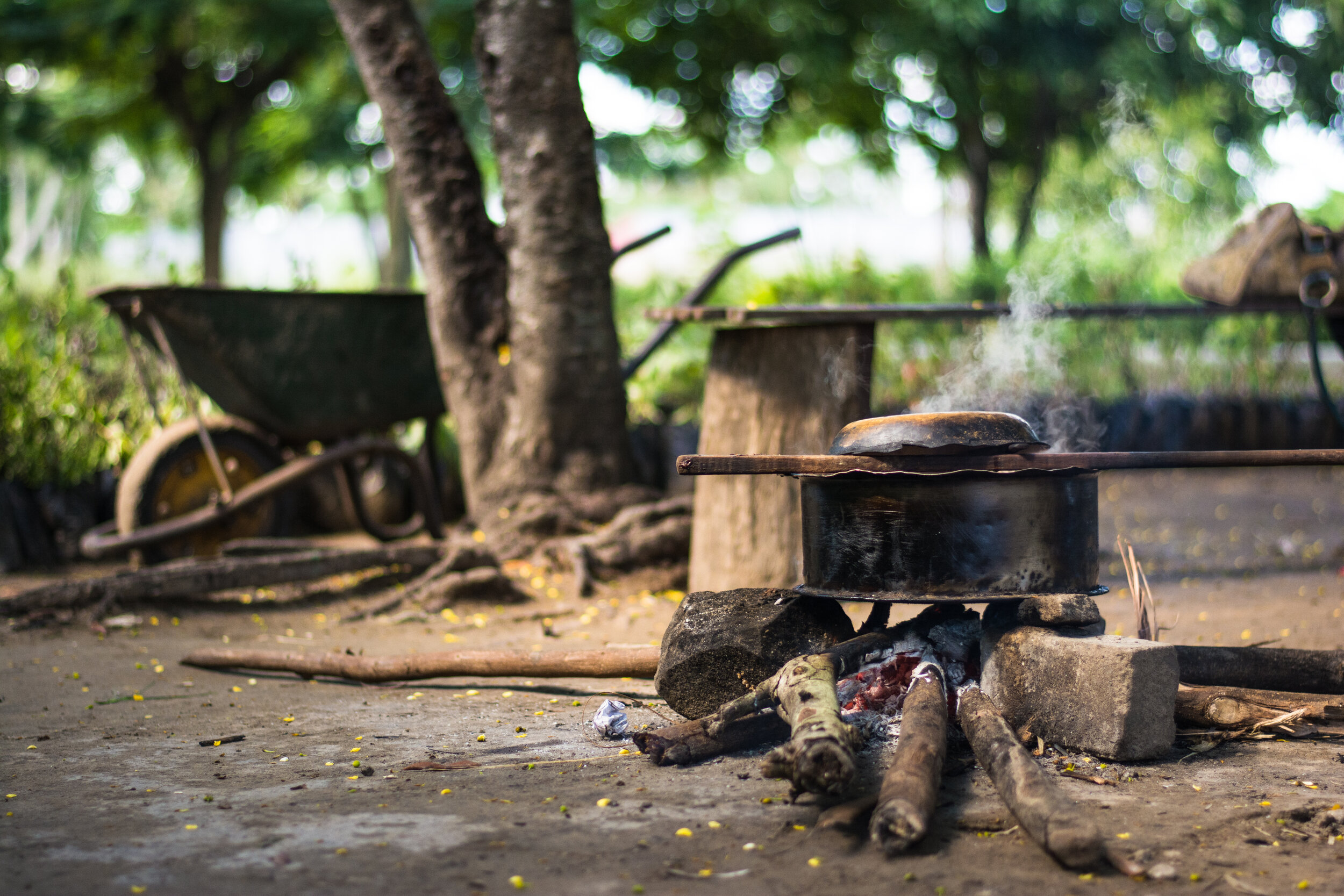
biOGAS Till hushåll quelimane
One of our longest-running projects is the creation of sustainable biofuels. The idea for this project first came in 2017, when Silja Lehtinen traveled to Quelimane to build a prototype anaerobic digester.
For those unfamiliar, anaerobic digestion is the natural process in which microorganisms break down organic materials. Ordinary organic wastes processed in digesters include animal manure, food scraps, fats, oils, and cooking greases. The byproduct of this digestion is biogas, a renewable energy source comprised chiefly of methane (CH4). Methane is the primary component of natural gas, and can power engines, provide heat, fuel boilers, and run vehicles.
Building on an earlier student project studying waste management in Quelimane, Silja constructed a digester to recycle farm and cooking waste as part of a pilot project. Her digester prototype used local materials for sustainability, with an eye towards scalability if the project was successful. Unfortunately, the prototype digester could not produce substantial amounts of gas, but Silja's invaluable research paved the way for the next team working on this problem.
The Second Team
Following the construction of the first prototype, Sara and Christian traveled to Quelimane in late 2017 to begin the construction of a second, larger digester. Building on the excellent work of Silja before them, they managed to create a working digester that is now in use by the city of Quelimane.
For some background: Quelimane is one of the largest cities in Mozambique, with around 400,000 people. Despite this size, the city has always had a problem with waste management, somewhat exacerbated by its having only 12 employees to manage its garbage. To put that in perspective, the similarly-sized city of Arlington, Texas, employs over 740 people to manage their waste.
Seeing this situation, Sara and Christian knew there was a demand for alternative methods of treating this waste. Unlike in Western countries, almost all the trash was organic material, so they decided to narrow the scope of their project to focus on organic material only.
Building on the previous project, Sara and Christian redesigned the digester with smaller rural households in mind. They made their improved prototype with locally sourced and very cheap materials so that an unskilled person could reasonably recreate their original. An IKEA-style instruction manual (no text, just simple drawings) accompanied the system, allowing anyone to build their own. In a perfect example of only using local materials, the gas produced by the digester system collects in a used tire inner tube, allowing for convenient transport and safe storage.
With the success of the new digester, an engineer from the municipality took over the program after Sara and Christian left. The city continues to test and refine the digester prototype, intending to roll out kits to residents soon.
Sara’s prototype drawings - she always has a backup career as an artist!
Project Vita Team with the second digester prototype.


